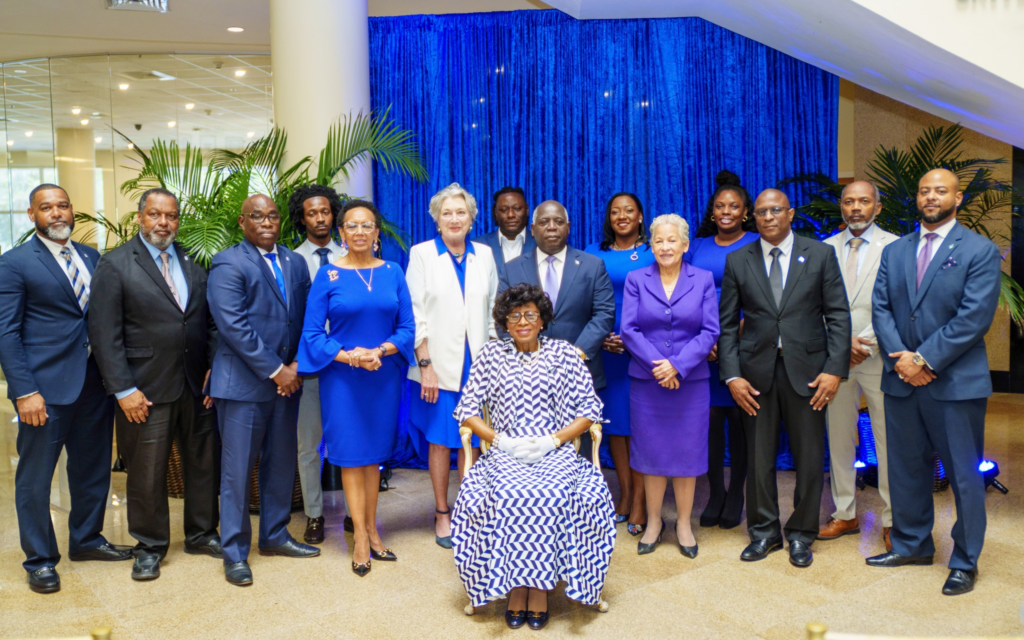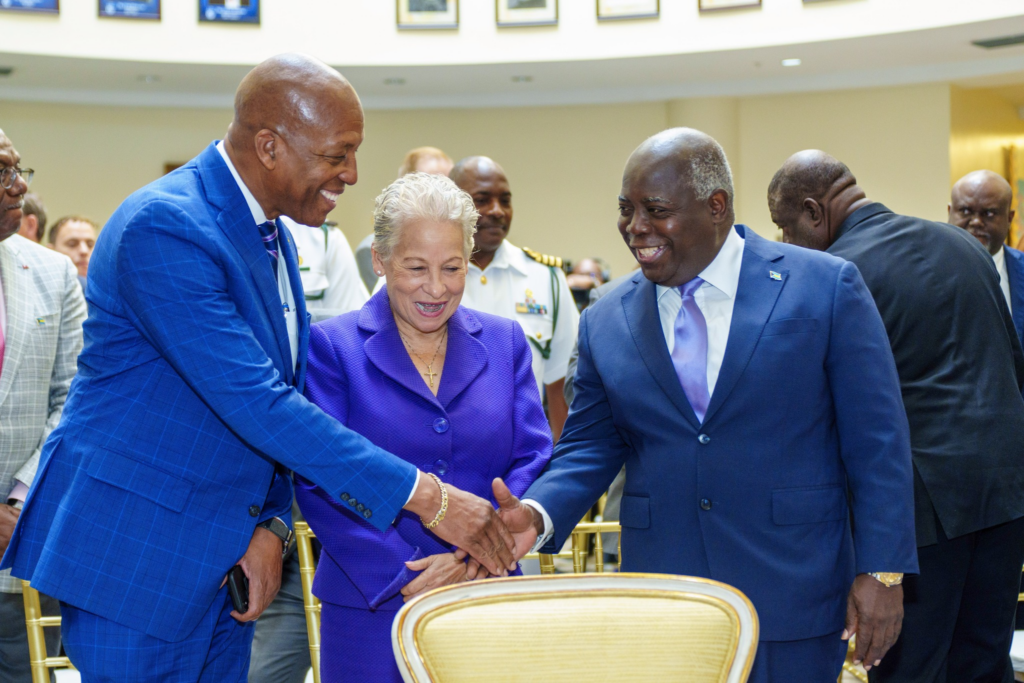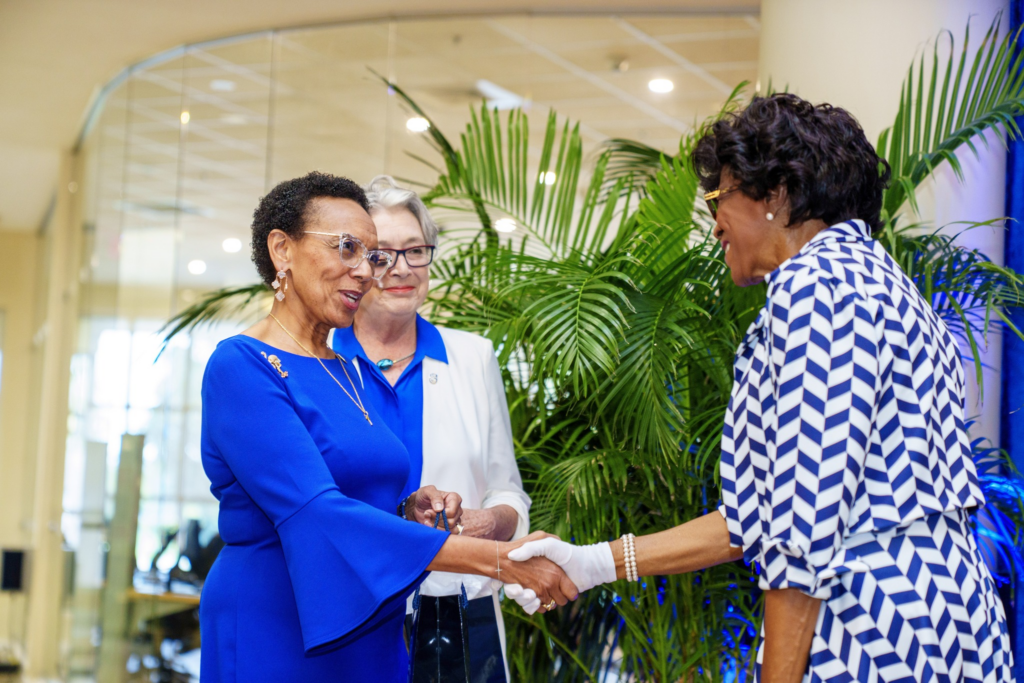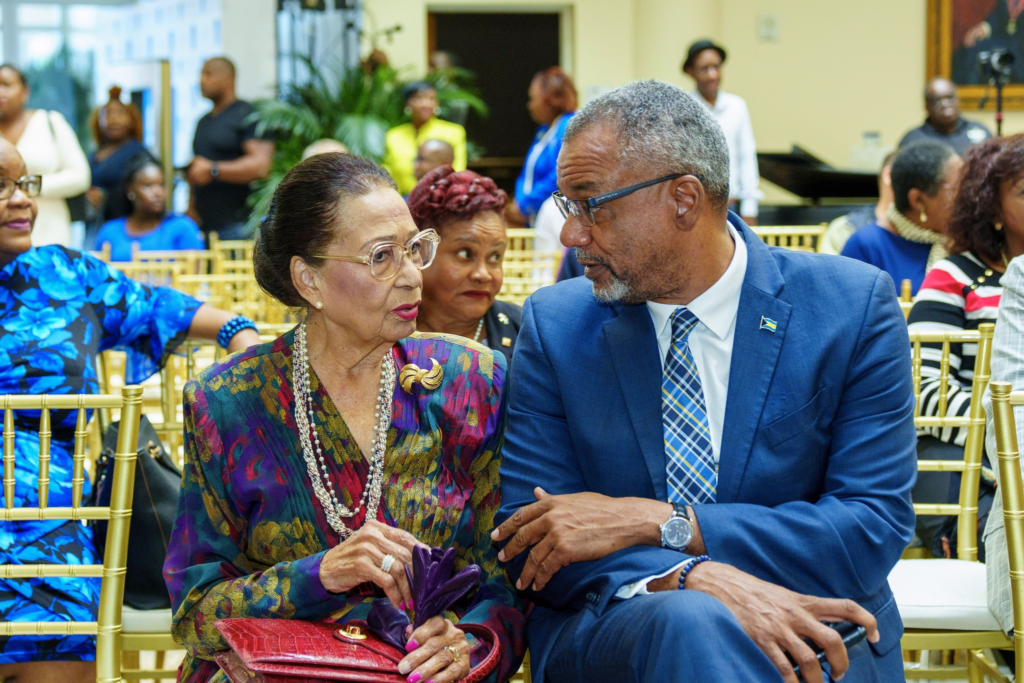
PM DAVIS: Today we celebrate the @universityofthebahamas‘s golden jubilee!
UB has played an undeniable role in the flourishing of a post-Independence Bahamian middle class, the development of Bahamian academia, scholarship, and research as well as the cultivation of leaders and nation-builders in various fields.
So as we celebrate 50 years of this esteemed institution, we also salute the powerful force of change that the University will continue to be for the next 50 years and beyond!





Prime Minister Philip Davis’ Remarks at the University of The Bahamas Golden Jubilee Celebrations: Citizens Make The Nation
Thank you, Ms. Deal, for that gracious introduction.
President Hodder,
Chair and Vice Chair of the Board of Trustees,
Distinguished educators and staff,
Students,
Honoured guests,
Ladies and gentlemen,
Good morning.
Just off the heels of our nation’s Jubilee year, we are here to celebrate yet another historic moment.
Today, we mark the official start of UB’s golden jubilee celebrations.
This is no small feat.
Fifty years ago, we were a nation in its infancy taking our first steps as an independent nation.
At the time, no one knew what the future held for us. There are nations who took similar steps who did not experience the same degree of success that we enjoyed.
While our leaders at the time crafted a vision for a prosperous future, there were no guarantees.
While many of us cherished and celebrated the moment we gained independence, there were those who openly doubted us. There were those who said we could not make it on our own and those who longed to return to the British.
Some even packed up their Georgie bundles and left – never returning to our shores again. Because of a lack of belief in Bahamian excellence.
The notion that we could make contributions to academia in the form of our own tertiary institution was quite a bold idea at a time when the government’s efforts were focused primarily on providing scholarships for Bahamians to study abroad.
That was the backdrop fifty years ago, when an Act of Parliament established the College of The Bahamas by unifying the operations of The Bahamas Teachers’ College, the San Salvador Teachers’ College, the C.R. Walker Technical College, and the Sixth Form Programme of the Government High School.
It was a proud moment for us all. To be one year removed from Independence and to have already established our own institute of tertiary education was quite an achievement.
Even back then we had already begun to acknowledge the role of regional unity and support as a critical component to national advancement. We were able to rely on a report written by an advisory team from the University of the West Indies to assist us in the run-up to COB’s opening.
So, in 1974, after diligent and tireless efforts on the part of so many stakeholders, the College of The Bahamas was formed. In those early days of the College’s formation, Sir Lynden already had his eyes set on the future transition from college to university status – a dream conceived in 1974 that would not be realized until 2016.
In his speech marking the official opening of the College of The Bahamas, Sir Lynden stated:
“The College will produce graduates who are not only technically competent but also who would have developed a social consciousness.”
Pindling’s words speak of a critical function of universities: to stoke the burning passions of students as agents of change, as intellectual leaders and the conscience of society, and as active citizens.
An educated and passionate citizen with a social conscience is a powerful force for good in a nation.
We all acknowledge the role that UB played in the flourishing of a post-Independence Bahamian middle class; in the development of Bahamian academia, scholarship, and research; in the education of thousands of professionals; and the cultivation of leaders and nation builders in various fields.
COB was among the first of several institutions established by the Pindling administration that demonstrated to the world our intentions to develop our people and our nation.
Other institutions that soon followed included the Central Bank of The Bahamas, the Bahamas Development Bank, and the Bahamas Agricultural Corporation.
In growing its economy, developing and educating its citizens, and establishing lasting institutions, The Bahamas achieved what many, including former Colonial Office Advisors, thought impossible.
These institutions now form the bedrock of our modern society. We thank those who made vital contributions over the years, including many of the people assembled here today, for playing their part in shaping our institutions and our nation.
Of course, a Jubilee year isn’t just about acknowledging and celebrating the past 50 years. It is also about looking ahead to the next 50 years.
As this institution continues to flourish and mature as a university, I believe that UB will be pivotal to our national development plans, as it was in the development of the National Development Plan during the Christie administration.
We have a lot that we must accomplish over the next few years, and there is no way we can successfully move forward as a nation without the direct inclusion and strategic integration of our University.
There is an urgency to our work to create a fairer and more prosperous society. Each year that successive administrations failed to introduce the necessary reforms further contributes to the web of social, cultural, and economic issues we face today.
In our immediate future, we have plans to reform our energy sector to produce more stable, more affordable electricity for Bahamian households at a national scale.
We have plans to transform the agricultural industry, so that we grow more of what we eat here at home, and lower our food import bill.
We have plans to expand opportunities for homeownership by building more affordable homes, working with local banks to introduce more competitive rates and standards, and introducing innovations like the rent-to-own initiative.
We are working to reform the national primary and secondary curriculum with a focus on building foundational academic skills while better preparing our students to take advantage of future opportunities.
We are expanding the delivery of healthcare, redeveloping critical infrastructure on New Providence and throughout the Family Islands, revamping our National Investment model, strengthening the government’s fiscal standing, diversifying and broadening our approach to economic development, reimagining our tourism product, and working to address many of the social ills plaguing our communities.
As you may imagine, executing this vision requires a tremendous amount of effort and expertise, as well as financial resources. It will also require time to build on the foundation we are setting at this very moment.
But the primary ingredient that will make all of this possible is a steady flow of Bahamian professionals, experts, innovators, changemakers, scholars, researchers, and passionate nation builders.
It is our human resources – our people – who will ultimately determine the success of our developmental strategies.
The University of The Bahamas has an essential role to play in this regard.
While not everyone is destined for university, everyone can benefit from the contributions that the university makes to society.
There is an inherent understanding of the importance of UB to our nation and the extent to which UB makes its contributions with the highest degree of professionalism.
Your stellar reputation was 50 years in the making. It has been built by a passionate student body and an equally passionate group of professors, administrative staff, support and operational staff, and leaders who have made the University of The Bahamas what it is today.
In recognising the importance of UB, we must also uphold our obligation to support UB in the achievement of its mission. Because when UB succeeds, our nation succeeds.
We must also place our focus on the needed improvements to our primary and secondary schools so that we are creating a pool of students who are ready to succeed at the tertiary level, in the job market, or wherever their post-secondary journey takes them.
We must embrace education’s role as a key economic driver and tool for social change. We must respect and empower our educators and stamp out emerging elements of anti-intellectualism.
And we must strengthen, celebrate, and safeguard our institutions of learning – because there is so much at stake, and so much to gain.
Bahamians are at the heart of The University of The Bahamas. And it is through UB that we come to better understand ourselves, our culture, our philosophies, and our needs.
So today, we celebrate 50 years of this esteemed institution, recognising its great value to building and defining our nationhood. And we also acknowledge the powerful force of change that the University can be for the next 50 years and beyond.
Thank you and God bless you.







